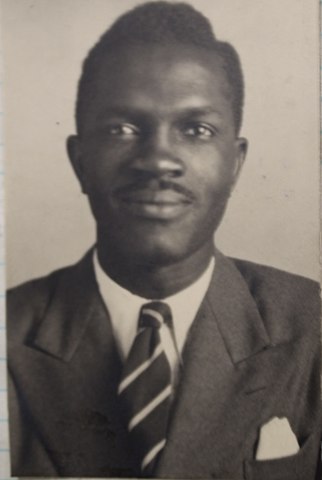Davidson Nicol
 On 14 September 1924, Sierra Leone Creole academic, diplomat, physician, writer and poet Davidson Sylvester Hector Willoughby Nicol CMG, pen named Abioseh Nicol, was born in Freetown. He was able to secure degrees in the arts, science and commercial disciplines. Nicol also contributed to medical science when he was the first to analyse the breakdown of insulin in the human body, a discovery which was a breakthrough for the treatment of diabetes.
On 14 September 1924, Sierra Leone Creole academic, diplomat, physician, writer and poet Davidson Sylvester Hector Willoughby Nicol CMG, pen named Abioseh Nicol, was born in Freetown. He was able to secure degrees in the arts, science and commercial disciplines. Nicol also contributed to medical science when he was the first to analyse the breakdown of insulin in the human body, a discovery which was a breakthrough for the treatment of diabetes.
Nicol spent part of his boyhood in Nigeria, then returned to Sierra Leone to the Prince of Wales School in Freetown. In 1943, he won a government scholarship to read natural sciences at Christ's College, Cambridge, graduating with a BA in natural science in 1947. With a medical degree from the London Hospital medical college, he taught at the Ibadan University medical school, researching tropical malnutrition, before returning to Cambridge in 1954. Nicol was the first black African elected as a Fellow of a Cambridge college, becoming a Fellow of Christ's in February 1957 and researching the structure of insulin. He published two works on the topic, 'The Mechanism of Action of Insulin' and 'The Structure of Human Insulin', both in 1960.
In the same year he became principal of Fourah Bay College. Under his principalship the college expanded. Nicol continued his administrative career at the university level in Sierra Leone as first the chairman (1964–68) then as Vice-Chancellor at the University of Sierra Leone (1966–68). Nicol left academia in 1968 to become the Permanent Representative of Sierra Leone to the United Nations, which he served as until 1971. In that year, Nicol became the High Commissioner to the United Kingdom. In 1972, Nicol became the Under-Secretary-General of the United Nations under Austrian Kurt Waldheim, which he served as until 1982.
Beginning in 1965 with 'Two African Tales', Nicol was a published author of short stories, as well as poetry, music, academic literature and a biography of Africanus Horton, an early Sierra Leonean author and one of the founders of African Nationalism. His last piece of published work was 'Creative Women' in 1982. Nicol died on 20 September 1994 in Cambridge at the age of 70.
(Source: Wikipedia)

